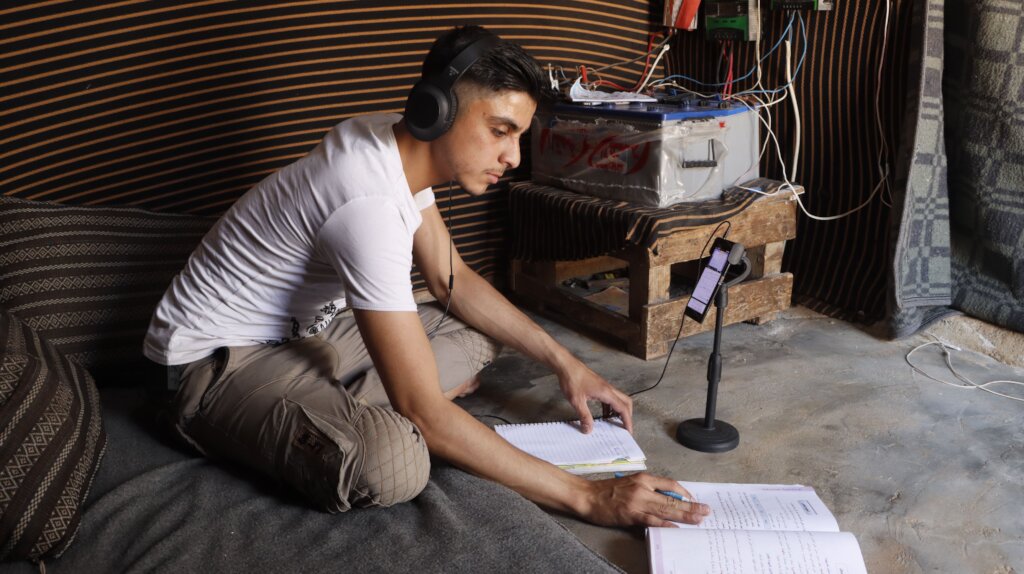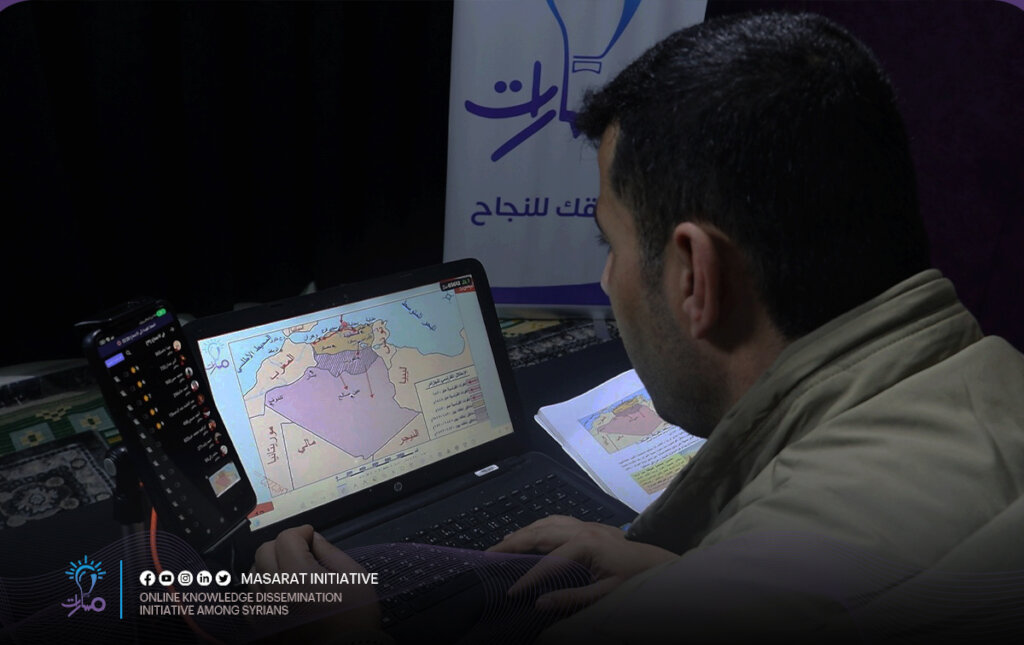Zakat al-Fitr serves as a blessed conclusion to the month of fasting and drawing closer to Allah, transcending routine rituals to reflect the values of community bonding and support. As the end of the blessed month of Ramadan approaches, the question of the appropriate time for its distribution and its spiritual and social significance renews.
As usual, today’s article will answer questions about the rulings and Sunnah of Zakat al-Fitr, how and when it should be distributed, and its profound impact on the Islamic community.
When is it permissible to distribute Zakat al-Fitr?
Zakat al-Fitr becomes obligatory with the sunset on the last day of Ramadan, and some scholars have permitted its distribution one or two days before Eid to allow the needy to meet their needs in advance. However, the Sunnah specifies that it should be given before the Eid prayer, as mentioned in the hadith:
Ibn `Umar reported that the Prophet commanded that Zakat al-Fitr should be given before people go to the Eid prayer.
The Virtue of Zakat al-Fitr in Ramadan
Zakat al-Fitr has great benefits for all Muslims, as emphasized by Prophet Muhammad (peace be upon him), who stressed its importance as a mandatory act. Its benefits include:
- Purifying the fasting person from minor acts that may have affected their fast.
- Earning great reward for embodying the Prophet’s teachings in providing a specific amount of food.
- Purifying the soul from selfishness and stinginess.
- Providing financial support to the poor, easing their life burdens.
- Bringing joy to the needy, thereby enhancing the sense of brotherhood among Muslims.
The Correct Time for Distributing Zakat al-Fitr
Zakat al-Fitr should be given before the Eid prayer, in accordance with the teachings of Prophet Muhammad (peace be upon him) and the consensus of the majority of jurists.
Despite some differences among scholars regarding its early distribution from the beginning of Ramadan or even two days in advance, the Maliki and Hanafi schools emphasize its distribution by dawn on Eid day. Meanwhile, Imam Malik and Imam Ahmad allowed its distribution one or two days before Eid.
When is it permissible to distribute Zakat al-Fitr?
Zakat al-Fitr should be given before the Eid prayer, as stated by Ibn `Umar: “The Messenger of Allah ordered that Zakat al-Fitr should be paid before people go out to the prayer.”
The Best Time for Distributing Zakat al-Fitr
Most jurists recommend distributing Zakat al-Fitr before the Eid prayer, based on the Prophet’s teachings, confirming that its obligation begins with the sunset of the last day of Ramadan.
What is the latest time to distribute Zakat al-Fitr?
The principle is that Zakat al-Fitr should be paid before the Eid prayer, but it may be delayed until the sunset of Eid day for a legitimate excuse. However, delaying without an excuse is not permissible, emphasizing its distribution at the specified time.
Is it permissible to distribute Zakat al-Fitr before its time?
The Maliki and Hanbali schools agree on distributing Zakat al-Fitr one or two days before the Eid prayer, as reported by Ibn `Umar and compiled by Bukhari. In contrast, the Hanafi and Shafi’i schools allow its distribution from the beginning of Ramadan.
The Timing for Distributing Zakat al-Fitr According to the Four Schools of Thought and Scholars
The Maliki and Hanbali schools prefer distributing Zakat al-Fitr two days before the Eid prayer, based on hadiths narrated by Ibn `Umar and compiled by Bukhari. Conversely, the Hanafi and Shafi’i schools view the start of the holy month as an acceptable time for its distribution. This diversity of opinions highlights the flexibility and variety in Islamic jurisprudence regarding the timing of Zakat al-Fitr’s payment.
The Timing for Distributing Zakat al-Fitr According to the Shafi’i School
Zakat al-Fitr can be distributed throughout Ramadan until the first day of Eid. According to teachings narrated by Ibn `Umar, it must be given before people go out for the Eid prayer.
The Timing for Distributing Zakat al-Fitr According to the Maliki School
For the Maliki school, Zakat al-Fitr is to be distributed two days or a day before Eid.
The Timing for Distributing Zakat al-Fitr According to Ibn Baz Ibn Baz
permitted the distribution of Zakat al-Fitr before the Eid prayer, indicating in the Fatwa Collection that it could also be given two days before Eid.
The Timing for Distributing Zakat al-Fitr According to Ibn Uthaymeen
Ibn Uthaymeen stated that Zakat al-Fitr must be paid before the Eid prayer, allowing its distribution two days in advance. However, distributing it after the prayer is prohibited and unacceptable.
The Timing for Distributing Zakat al-Fitr According to the Egyptian Dar al-Ifta
The Egyptian Dar al-Ifta allowed the distribution of Zakat al-Fitr with the sunset on the last day of Ramadan, aligning with the Maliki, Shafi’i, and Hanbali schools. It is also permissible to distribute it early from the first of Ramadan since its obligation arises from fasting Ramadan and breaking the fast, making its early distribution legally acceptable.
The Ruling on Delaying Zakat al-Fitr Beyond Its Time
Is it permissible to delay Zakat al-Fitr beyond the Eid prayer?
Zakat al-Fitr should be paid before the Eid prayer, either on the morning of Eid or during its night, with the possibility of advancing it from the 28th or 29th of Ramadan. However, delaying it until after the prayer is not accepted.
The Ruling on Delaying Zakat al-Fitr After the Eid Prayer Without an Excuse
Delaying Zakat al-Fitr is not legally acceptable as it contradicts the Prophet Muhammad’s directives, who emphasized its payment before the Eid prayer. Delaying without an excuse is considered a mistake requiring adherence to the specified time for its payment.
What is the expiation for delaying Zakat al-Fitr after the Eid prayer, with or without an excuse?
Failing to distribute Zakat al-Fitr necessitates repentance to Allah and hastening its payment as a form of compensation, as the delay is considered a sin requiring repentance.
Masarat for Education and Training in Syria
Amidst displacement movements and the spread of refugee camps, especially informal ones, the educational infrastructure has collapsed. With the increase in poverty rates, the dropout rate, especially among orphans and those with disabilities, has risen. Therefore, Masarat works to provide free distance education, reaching them in their homes and inside their worn-out tents.
We offer them education and knowledge through a comprehensive knowledge system aimed at building a capable individual to live a dignified life.
Your donation today contributes to expanding the target area and reaching thousands of orphans who have left their studies and entered the labor market. Remember the Prophet’s saying, “I and the caretaker of the orphan are like this.”









